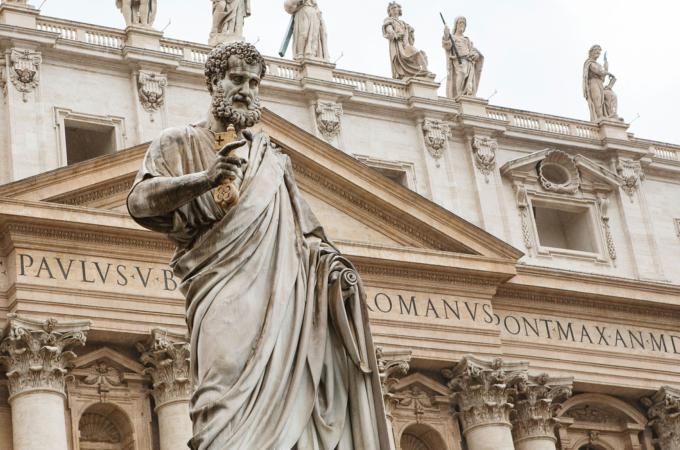Policies and persistence
The Vatican's long-in-coming response to the Church's widespread sexual abuse scandal is certainly good news. The changes in policy announced by Pope Francis in "Vos estis lux mundi" are encouraging. We will now be more equipped to hold bishops and other Church officials accountable not only for acts of abuse, but for failing to report them. Clear channels for reporting allegations of abuse by not only priests, but bishops, religious, and lay leaders, will be established. Whistleblowers will be protected from repercussion. Allegations will be forwarded to Rome promptly, and investigations will be required to start within 30 days.
Some have heralded this motu proprio as "revolutionary," even proclaiming it a "rare gift to the Church." Others have noted that the lack of a mandate for lay participation leaves the Church vulnerable to the clericalism many have linked to the institutional failure to address this issue in the past. But one thing is clear: while these measures are all very good and prudent, this is not the end of the Church's sexual abuse scandal. It is only the next step in our attempts to address it.
It will take significantly more muscle to end sexual abuse in the Church. Why? Because lust, infidelity, intimidation, and abuse did not originate in a policy or the lack of one. It, therefore, cannot be solved by a policy, no matter how necessary that policy may be. Administrative failure may reveal sin, even promulgate it. But it is absurd to conclude that an empty desk or the lack of a review board creates the situations that need to be reviewed. Aleksandr Solzhenitsyn had it right when he wrote that the line between good and evil cuts through every human heart. Our hearts are like Pandora's Box: when all the evils they contain escape and rush into the world, only hope remains.
I do not believe that it is pessimistic to say that we will never completely eradicate any sin here in our earthly lives, including those that qualify as sexual abuse. To me, it is sound theology coupled with realism. Jesus Christ, the Son of God, lived, suffered, and died to free us from sin -- yet, sin persists. He himself told us that the wheat and the weeds will grow together until the final harvest. That is true in the gardens of our own hearts. If the Blood of Christ on the cross and in Holy Eucharist does not entirely erase the realities of evil and sin from our hearts or from the world, no policy will. And lest we forget, there is one who prowls among us like a roaring lion, seeking to kill, steal, and destroy. When Jesus told Simon Peter that the Gates of Hell would not prevail against the Church, he did not say it would be for lack of trying.
And so, we do not stand still, but move forward tenuously, with uncertain steps along a path we do not want to walk. It is a way of the cross because, like every path, it is a way to the cross. Sexual abuse -- and sin in all its forms -- will end beneath the cross and nowhere else. The war has been won, but the final battle has not yet taken place. Each of us must validate the words of Jesus, "It is finished" in our own lives, by commending ourselves into the Father's hands as he did. Yes, we need to repent of past arrogance and error. Yes, we need to do all we can to prevent sin from occurring and to address it when it does. Yes, we need better formation in seminaries. Yes, we need to proclaim and obey the Church's teaching on human sexuality more consistently and more clearly. Yes, we need to pray and fast. And yes, above all, we need to walk with the victims of sexual abuse more willingly and more deeply.
Ultimately, however, every baptized Christian needs the power of the living God not just within reach, but within. We need Jesus to be Jesus for us. We need a loving savior to call us to holiness and help us to attain it. "Our struggle is not against enemies of flesh and blood" -- institutions or individuals --"but against the rulers, against the authorities, against the cosmic powers of this present darkness, against the spiritual forces of evil in the heavenly places" (Eph. 6:12).
- Jaymie Stuart Wolfe is a Catholic convert, wife, and mother of eight. Inspired by the spirituality of St. Francis de Sales, she is an author, speaker, and musician, and serves as a senior editor at Ave Maria Press. Find Jaymie on Facebook or follow her on Twitter @YouFeedThem.



















